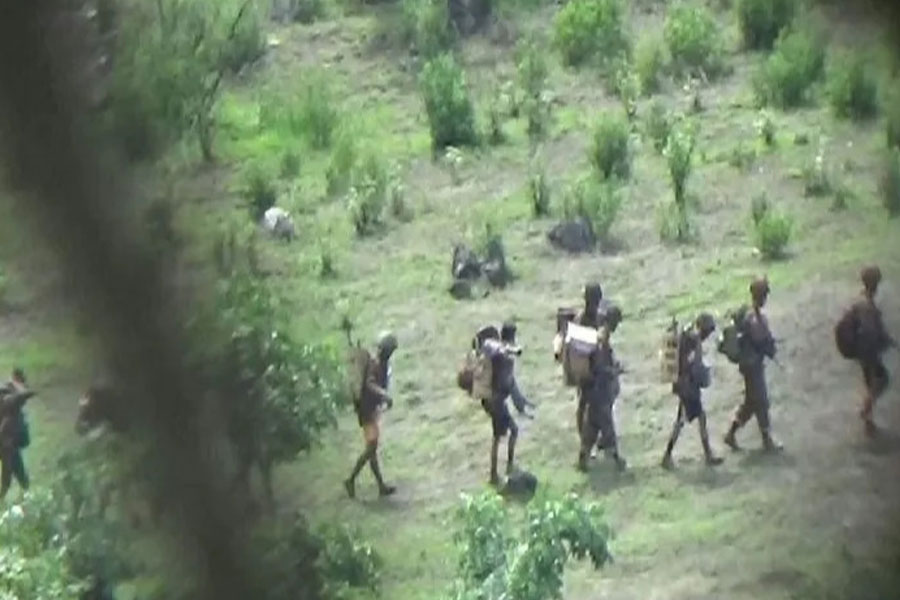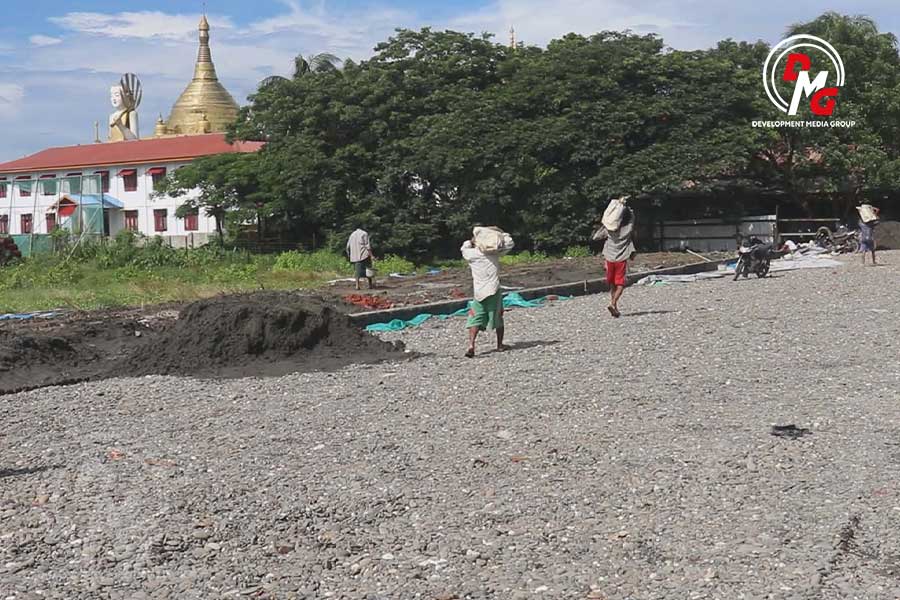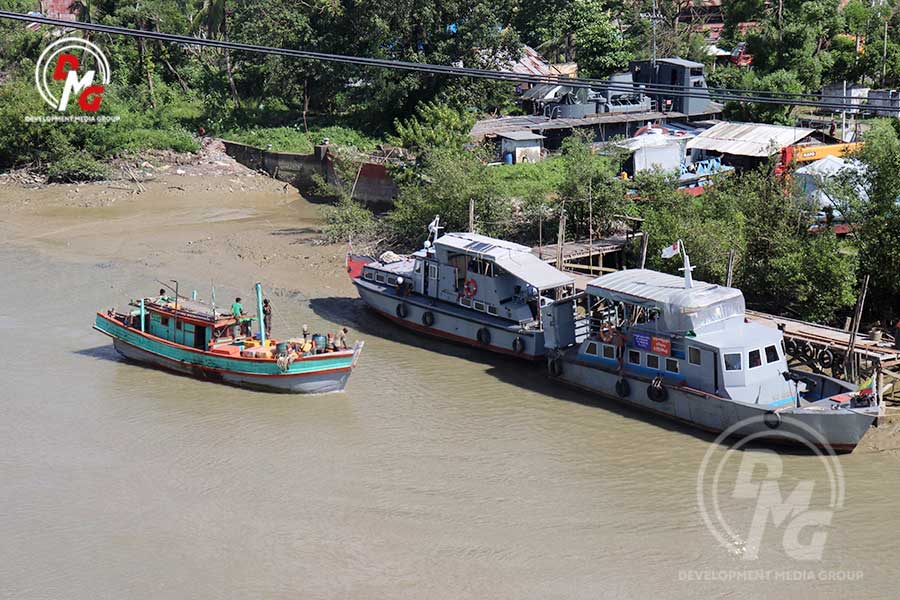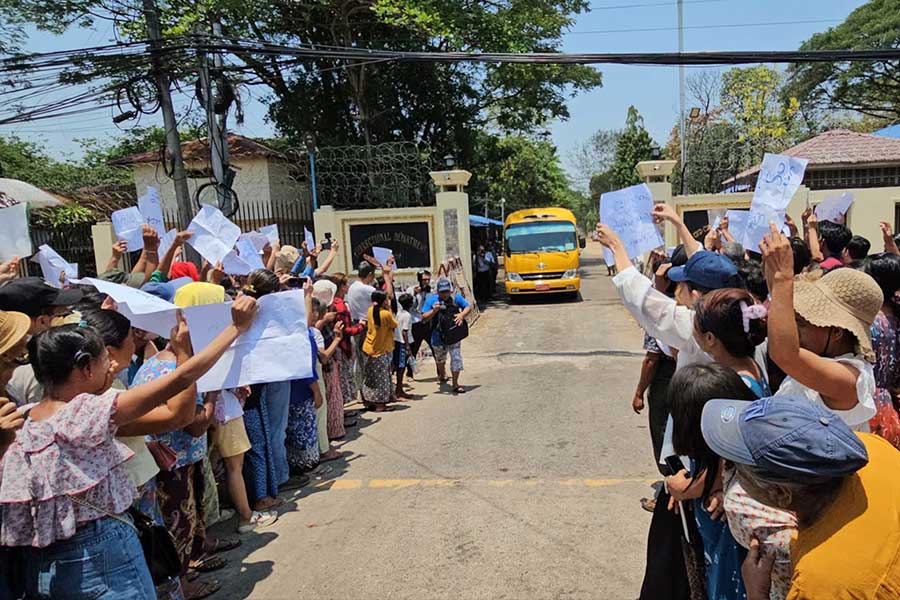- Junta launches major offensive to retake strategic Mawchi mining town
- Extreme poverty drives Sittwe residents to dismantle abandoned houses for income
- Weekly Highlights from Arakan (Feb 23 to March 1, 2026)
- Over 300 political prisoners freed from 10 prisons nationwide
- DMG Editorial: Between War and Opportunity - A New Border Reality for Bangladesh and Arakan
As conflict closes Kachin’s jade mines, migrant workers suffer
China is the major buyer of Myanmar jade, but China has closed its border crossings with Myanmar to put pressure on ethnic armed organisations fighting the regime, significantly impacting the jade business.
25 Nov 2024
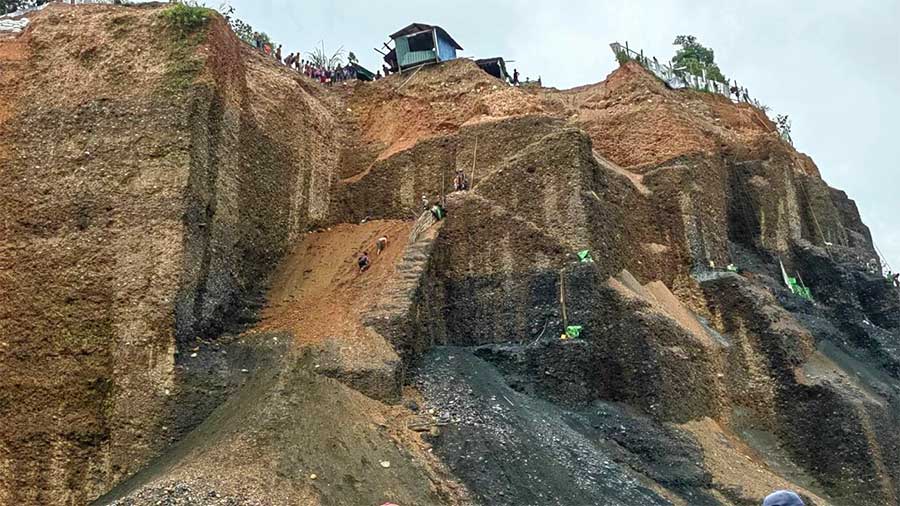
DMG Newsroom
25 November 2024, Mrauk-U
Intense armed conflict in Kachin State has forced closures of jade mines in Hpakant Township, causing difficulties for locals as well as migrant workers from Arakan State and elsewhere in Myanmar.
All major jade mining companies in Hpakant have halted operations since February, and jade mine workers are experiencing hardship.
One jade scavenger hailing from Arakan State said: “A lot of the companies are still closed. But some companies are operating. Those mines are crowded with scavengers both day and night. While gemstones are difficult to find, the demand is also low. So, it is tough to make a living.”
China is the major buyer of Myanmar jade, but China has closed its border crossings with Myanmar to put pressure on ethnic armed organisations fighting the regime, significantly impacting the jade business.
There are tens of thousands of Arakan migrant workers in Hpakant Township, mainly working as scavengers or miners at jade mines, as well as trading in jade.
Basic medicines and other commodities are running low in Hpakant as the Mandalay-Myitkyina route, the major trade route linking Kachin State with other parts of the country, has been closed due to fighting. Meanwhile, China has also closed its border crossing with Kachin State at Kanpiketi Town.
“About half of the jade seekers here are Arakanese people. Jade is difficult to find now as the mines are closed. However, the prices of goods have tripled, particularly basic medicines and fuel,” said another migrant worker from Arakan State.
Hpakant Township in northern Myanmar, which boasts some of the world's finest jade deposits, has long been a magnet for migrant workers who come from across the country, typically drawn by a belief that the Kachin State mines offer better livelihood prospects than their home towns and villages can. Despite a distance of hundreds of miles between the two states, Arakan State has been a large source of that migrant labour pool for many years.
But Arakan migrant workers in Hpakant cannot currently return home due to fighting in Arakan State as well. The regime has blockaded Arakan State since the latest hostilities between the Myanmar military and the Arakkha Army (AA) broke out in November of last year.
The Kachin Independence Army (KIA) captured the Kanpiketi border trade town from junta forces last week.
The closure of the jade mines and market instability are causing livelihood hardships for migrant workers.
“The big companies haven’t resumed operations yet. The political situation is bad, and the jade market is not good either. There has been no business in most jade mines except in Mt. Byaing Sein,” said U Maung Gyi, a jade trader in Hpakant Township.
Hpakant, the major source of the world’s imperial jade, is also notorious for rights abuses and frequent landslides at mining sites resulting in large-scale scavenger casualties.




